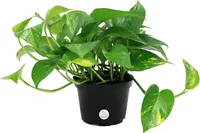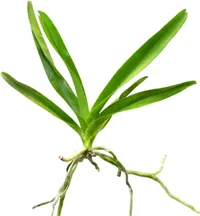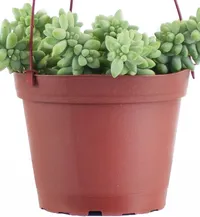6 of the best trailing plants designers and stylists are using to decorate homes with right now
With their cascading foliage, the best trailing houseplants are a stylish way to add a touch of elegance to your space. Here are the experts' top picks

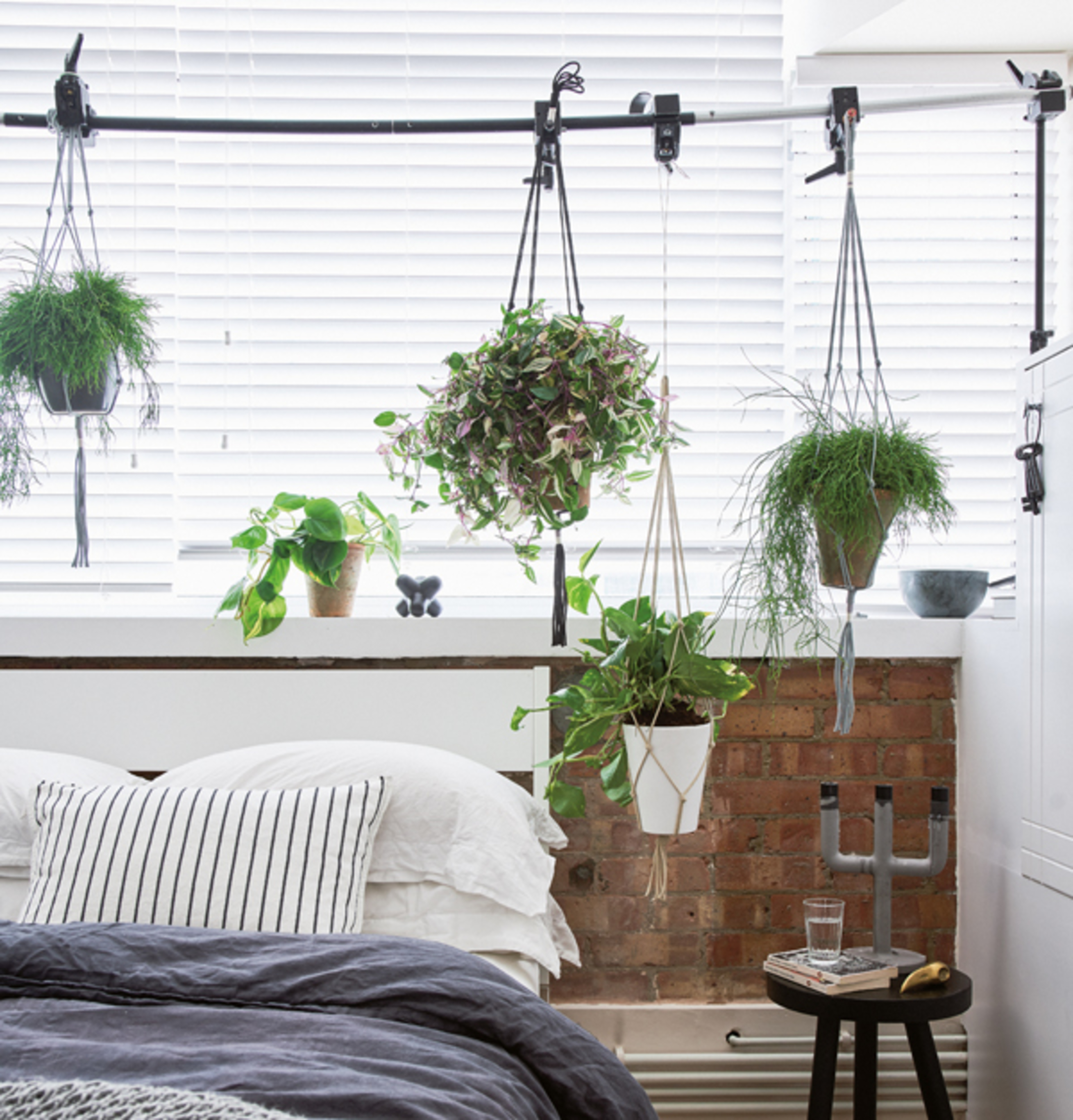
The Livingetc newsletters are your inside source for what’s shaping interiors now - and what’s next. Discover trend forecasts, smart style ideas, and curated shopping inspiration that brings design to life. Subscribe today and stay ahead of the curve.
You are now subscribed
Your newsletter sign-up was successful
Trailing houseplants are one of the most dramatic options out there. Be it the top of a bookshelf or a dim lackluster corner, a mass of green cascading foliage promises to brighten up your space. But how do you know which one is right for you?
Since almost every genus of plant has a trailing variety of some kind, there are a whole host of colors, shapes and styles to choose from when decorating with plants. Some love dry and warm spots while others thrive in shadier, moist conditions - and, inevitably, they grow at different rates too. With this in mind, you should carefully consider which type of tumbling greenery would work best for you.
To help you out, we've asked some plant experts to pick their cream of the crop, alongside all the plant care and styling tips you need before introducing a new leafy friend into your home.

Ian Drummond is an interior landscape designer and author. Ian has been at the forefront of the indoor plants revival in recent years and has won multiple gold medals at the RHS Chelsea Flower for his indoor gardens. His book, At Home with Plants, is published by Octopus Books.
What are the best trailing plants?
1. Aeschyanthus Pulcher (Lipstick Plant)
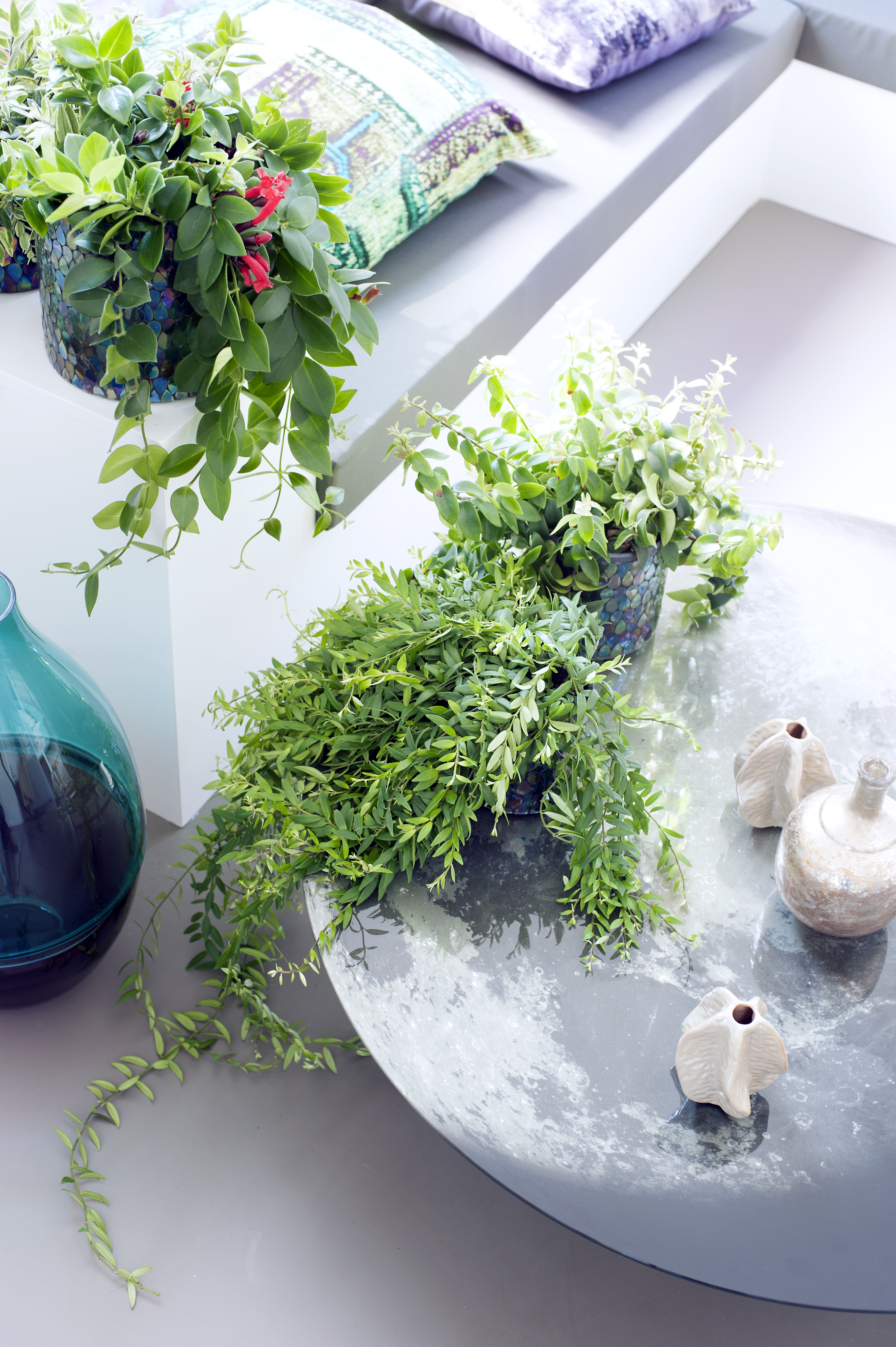
If there's anything better than a flowering houseplant, it's a flowering houseplant that trails. This cascading beauty has red flowers that grow in clusters among a mass of waxy green foliage making them a great choice for a hanging planter or for a stylish shelving idea.
'The Aeschyanthus produces bright red tubular flowers, hence its common name the Lipstick plant,' says Ian Drummond, plant expert and author of At Home with Plants, available at Amazon. 'It has cascading stems with glossy green leaves and can grow up to 70cm in length.'
The Lipstick Plant is one of the best houseplants for beginners since it's very low maintenance. 'It should be kept in a bright position away from direct sunlight, and only watered when the top of the compost feels dry,' says Ian. Don't risk overwatering as this plant is susceptible to root rot. Instead, give it a regular mist between watering.
2. Epipremnum Aureum (Devil's Ivy)

Epipremnum, better known as Devil’s Ivy, is characterized by its heart-shaped leaves that are usually variegated in green and yellow. This tropical vine plant is a particularly fast grower so, as trailing plants go, it will fill gaps on a shelf in no time.
The Livingetc newsletters are your inside source for what’s shaping interiors now - and what’s next. Discover trend forecasts, smart style ideas, and curated shopping inspiration that brings design to life. Subscribe today and stay ahead of the curve.
'Affectionately nicknamed "Rapunzel", you’ll enjoy seeing this plant let down its long hair as it grows,' says Jo Lambell, founder and plant expert at Beards & Daisies. 'Reaching up to an incredible 65 feet in the wild, you’ll be relieved to hear it tends to peak around six feet when kept indoors.'
For those who aren't so green-thumbed, the Devil's Ivy is an incredibly hardy plant. According to Jo, it enjoys indirect light, but it's also one of the best houseplants for low light levels making it perfect for brightening up a dim corner. 'Just ensure you keep its soil lightly moist with weekly watering and even an occasional misting,' Jo adds.
When it comes to styling this plant, it looks great on top of a tall bookshelf as it tumbles down the wall. 'The beauty of this trailing plant is you can guide it to trail exactly how you’d like using hooks on the wall, so it’s a great chance to get creative and bring the green indoors,' says Jo.
Sometimes known by Golden Pothos, this beautiful trailing plants has flecks of gold variegation in its leaves, giving it a sunny outlook for your home.
3. Hoya Linearis
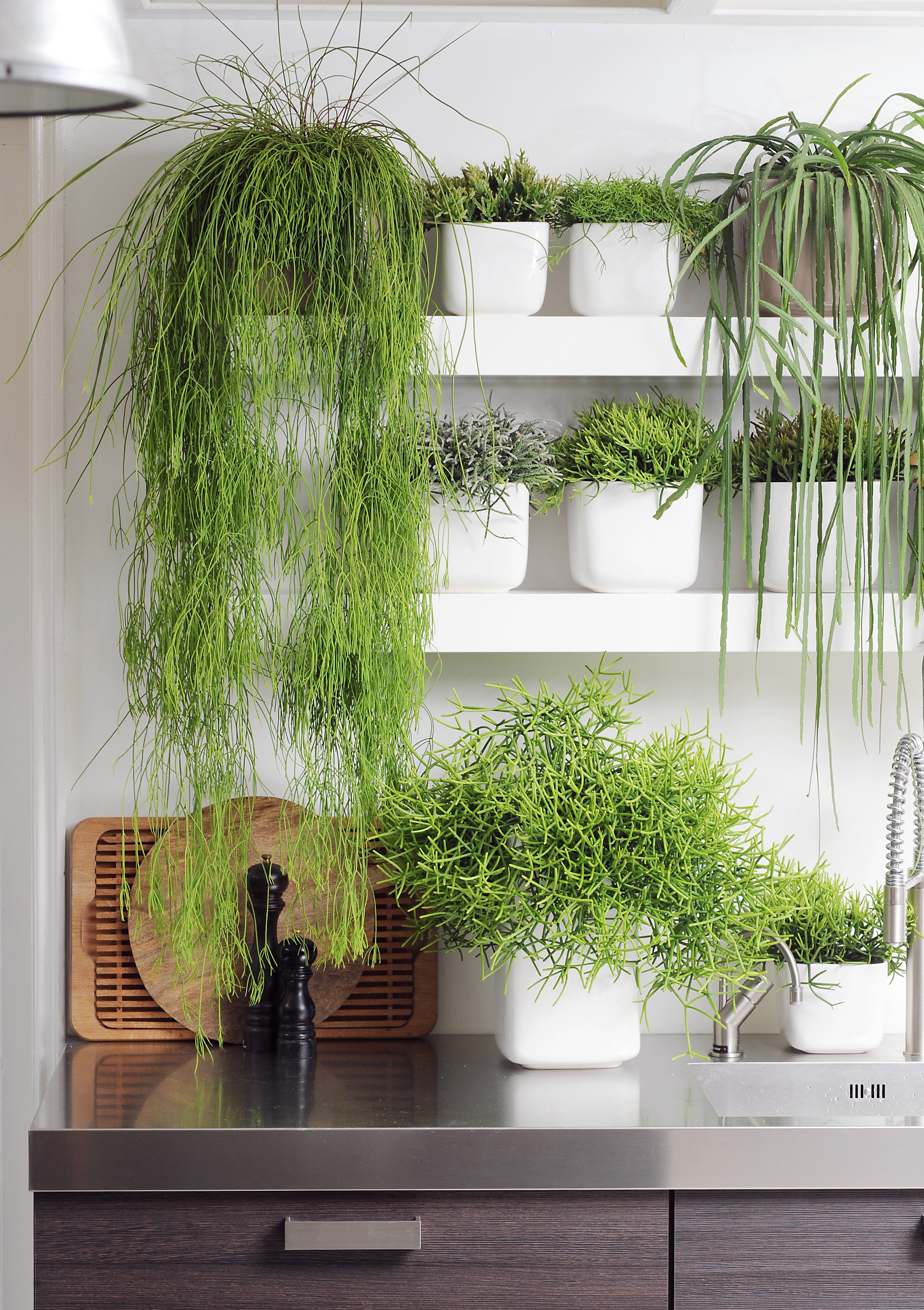
The Hoya Linearis is one of the most beautifully striking on this list. The succulent-like perennial has soft, fuzzy stems that drape down in long, curtain-like greenery. It produces white flowers during the growing season that reportedly have a lemony scent.
When it comes to how often you should water this houseplant, it prefers the soil more on the dry side. 'Don’t be afraid of leaving it a little longer before watering and remember to check that the top layer of soil is completely dry before watering again,' Jo advises. 'However, it does appreciate a weekly misting to help recreate the humidity levels of its native home.'
We weren't joking when we said this plant has the qualities of a succulent. The Hoya Linearis is not a fan of the cold, so Jo recommends using room-temperature water to keep it happy. It also likes a sunny spot with plenty of natural light throughout the day. Try hanging it in a window of the home where you use your blinds or curtains less. As Jo points out: 'Its structured leaves work beautifully against a rustic macramé hanger.'
4. Vanda Orchids
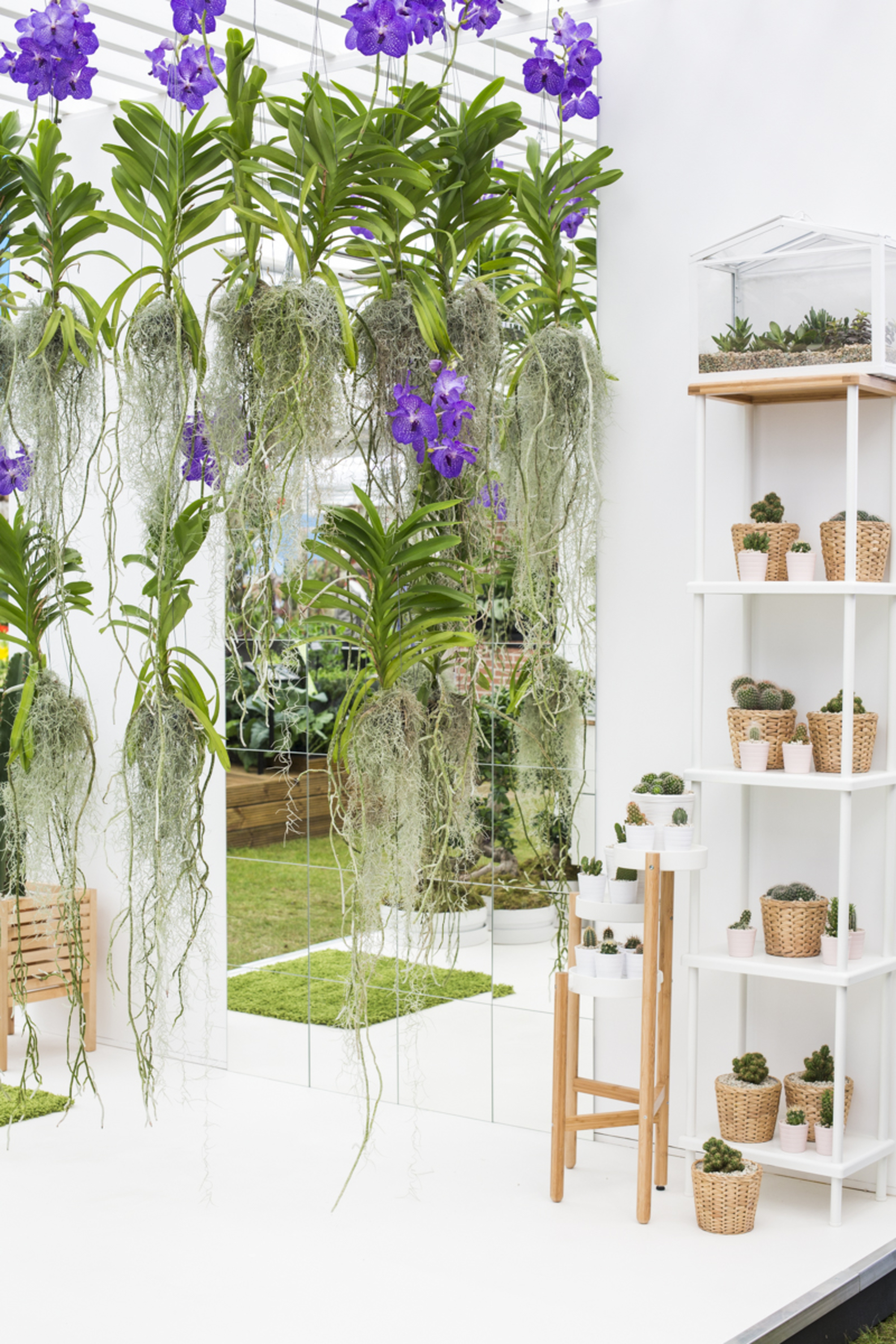
There's a reason why orchids are one of the most beloved ornamental plants. Vanda orchids produce stunning clusters of blooms in a host of colors with long aerial roots that cascade downwards.
'The flowers have flat petals and are one of the only orchids that have blue flowers,' explains Ian. 'Its most distinguishing feature is its rambling aerial roots which can grow up to six feet long.' Their roots grow this way because in their native tropical habitat Vanda orchids hang from trees with barely any soil.
If you're wondering how to care for orchids, it takes a little more skills than some of the other trailing houseplants listed here. As Ian points out: 'They require high humidity, very warm temperatures and bright light. The Vanda Orchid especially enjoys a water drenching followed by a dry period.'
Although they require a little more care than other plants, these orchids make them one of the best plants for bathrooms. Ian suggests creating a shower curtain of orchids, as seen above.
Orchids are too delicate to order online, right? Well you can buy these Vanda orchid plants before they flower for a very good deal, ensuring they arrive in one piece, ready to be trailed in your home.
5. Sedum Burrito (Donkey's Tail)
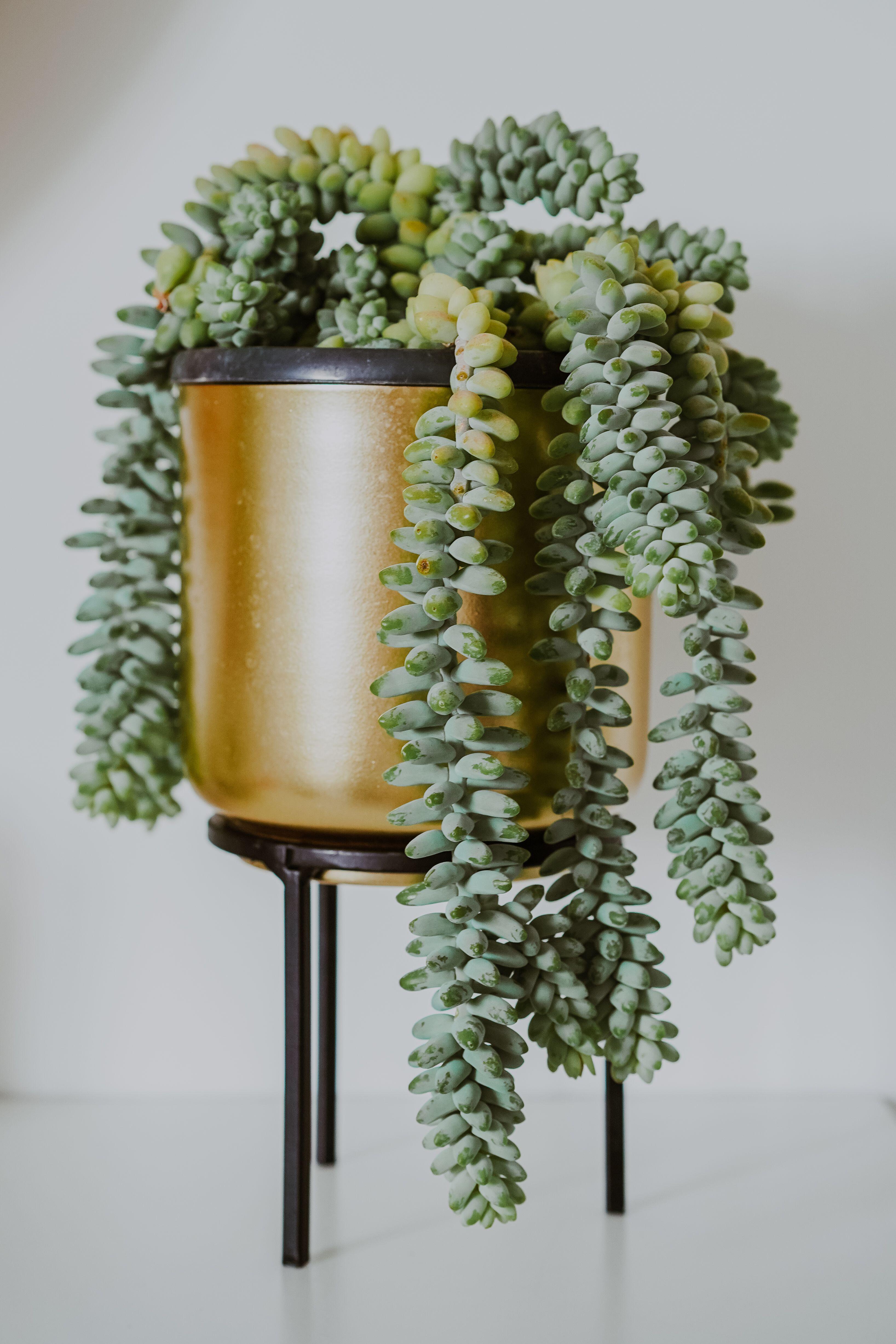
The Sedum Burrito, better known as the Donkey's (or Burro's) Tail, is a pale green trailing succulent with thick stems of packed leaves that almost look braided or woven.
During their early days the stems will grow upwards but, as the plant matures, they'll begin to trail down in long, tail-like shapes (hence the name). 'These chunky textured stems can grow up to 12 inches long,' says Ian. 'Small pink flowers can appear at the tips in the summer and the leaves turn pink when in bright sun.'
As is the case with all succulents, the Burro's Tail is a heat and drought-tolerant plant so it requires minimal watering. 'Remember to keep it in a sunny position to encourage growth and water sparingly, only when the top of the compost is dry.'
Ian suggests positioning this houseplant alongside other dry-loving plants above your sofa. If you don't have a shelf available to hang it from, read our advice on how to hang plants from the ceiling.
Buy a less mature Donkey's Tail sedum to get yourself a bargain on this plant. Look after it well, and it will become your new favorite trailing plant in no time.

Lilith Hudson is a freelance writer and regular contributor to Livingetc. She holds an MA in Magazine Journalism from City, University of London, and has written for various titles including Homes & Gardens, House Beautiful, Advnture, the Saturday Times Magazine, Evening Standard, DJ Mag, Metro, and The Simple Things Magazine.
Prior to going freelance, Lilith was the News and Trends Editor at Livingetc. It was a role that helped her develop a keen eye for spotting all the latest micro-trends, interior hacks, and viral decor must-haves you need in your home. With a constant ear to the ground on the design scene, she's ahead of the curve when it comes to the latest color that's sweeping interiors or the hot new style to decorate our homes.
